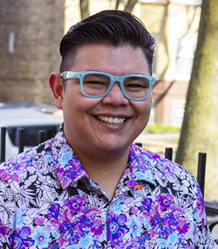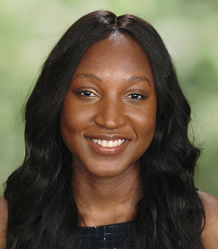Mancosh Pathways to the Professoriate Postdoctoral Fellowship Program

Ignacio Cruz
Made possible by $500,000 seed funding from the Provost’s Office and $500,000matching funds from an anonymous donor to honor mentor David Mancosh, this pilot program was launched in 2020–21 and has recruited its first two fellows to join us this fall: Paloma Martinez (radio/television/film) and Ignacio Cruz (communication studies).

Paloma Martinez
The initiative is a postdoc-to-tenure-track program designed to increase the diversity of the school’s faculty. The only program of its kind at the University (several peer institutions have even more extensive versions), the Mancosh program will recruit BIPOC postdocs in departments that lack diversity and provide them with professional development workshops, senior faculty mentors, research support, and other resources. After a two-year fellowship, the postdocs will transition into a tenure-track position.








